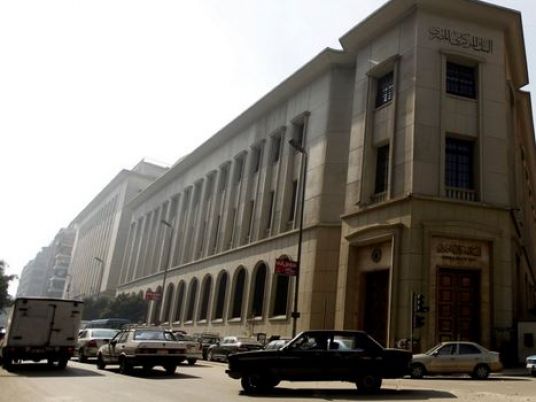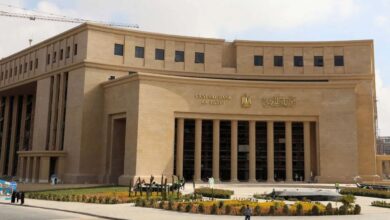
Egypt's central bank raised its key interest rates by 100 basis points on Thursday to their highest levels in years, in a move economists said was intended to rein in surging inflation and ease downward pressure on the Egyptian pound.
The Monetary Policy Committee (MPC) raised the overnight deposit rate from 10.75 percent to 11.75 percent, its highest level in over a decade. It hiked the overnight lending rate from 11.75 percent to 12.75 percent, its highest since 2008.
The increases exceeded the forecasts of most economists polled by Reuters this week. More than half of them said the central bank would keep policy rates unchanged.
"After evaluating the balance of risks surrounding the inflation outlook to date, the MPC judges that a rate hike is warranted to anchor inflation expectations over the medium term," the central bank said in a statement.
Urban consumer price inflation rose to 12.3 percent in May. Core inflation, which excludes items with volatile prices, such as fruit and vegetables, rose to an annual 12.23 percent last month, a seven-year high.
"We saw today an aggressive move in reaction to the surge in inflation and the mounting pressure on the pound," said Jason Tuvey, Middle East economist at Capital Economics in London.
"We see more monetary policy tightening on the cards. Inflation will continue to dominate monetary policy decisions and there will be a further rise in inflation next month."
President Abdel Fattah al-Sisi is under growing pressure to revive the economy and keep prices under control. The country has struggled to restore economic growth since a 2011 uprising ended the 30-year rule of Hosni Mubarak. The turmoil scared off tourists and foreign investors, key sources of hard currency.
The central bank devalued the pound to 8.78 per dollar in March and raised interest rates by 150 basis points days later to control inflation. But prices have continued to rise and the pound continues to face pressure on the black market.
The pound slid against the dollar again on Tuesday, with the black market rate now at 10.95 per dollar.
"Raising interest rates will also offer more support to the Egyptian pound as it drives up demand for local currency, especially if banks will follow through and increase rates on the pound," said Hany Farahat, senior economist at CI Capital in Cairo.
The central bank has kept the pound artificially strong since the March devaluation. While it announced a more flexible exchange rate policy at the time, it soon resumed its tight control of the currency.
"The central bank will eventually have to loosen its grip on the pound", said Tuvey. "We see another hike by 50 basis points before the end of the year."



